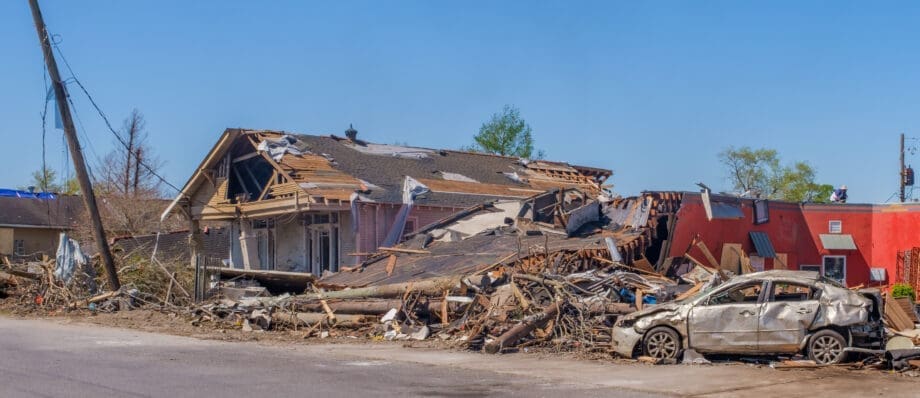The Importance of Local Business in Disaster Recovery
The Importance of Local Businesses in Disaster Recovery: Anchors of Resilience and Renewal
In the face of disasters—whether caused by natural events like hurricanes, earthquakes, and wildfires or human-made crises such as economic downturns or global pandemics—the strength of a community’s recovery often depends on its local businesses. These enterprises are more than economic engines; they are the backbone of their communities, providing essential goods, services, and a sense of stability. Local businesses are uniquely positioned to contribute to disaster recovery through their agility, deep community ties, and commitment to rebuilding.
Critical First Responders
Local businesses frequently act as critical first responders in disaster scenarios. Unlike large corporations with bureaucratic processes, local businesses can respond quickly to community needs. Grocery stores, hardware stores, pharmacies, and restaurants often remain operational—or reopen quickly—providing emergency supplies, essential services, and even financial relief through deferred payments or donations.
For example, after Hurricane Harvey in 2017, local pharmacies and convenience stores in Houston stepped up to provide life-saving medications and basic necessities to stranded residents, and other area businesses stepped up in many different ways to assist. Similarly, local businesses in California during the 2020 wildfires supplied firefighters with equipment and communities with emergency rations, underscoring their role as pillars of resilience. Other local businesses also stepped up and offered service, donations, and other help to area residents in their time of need.
Economic Stability and Recovery
Economic recovery is a cornerstone of disaster resilience, and local businesses are critical to stabilizing and revitalizing local economies. Small businesses contribute significantly to employment and the circulation of money within communities. According to the U.S. Small Business Administration, small businesses create two out of every three net new jobs in the economy. Their survival post-disaster ensures that jobs remain available and that income continues to flow within the community.
However, recovery is not guaranteed. According to Ready.gov, research shows that nearly 40% of small businesses do not reopen after a disaster. Those that do manage to reopen often signal a turning point in community recovery. By providing jobs, restoring access to goods and services, and re-establishing normalcy, these businesses are fundamental to economic stability and recovery.
Challenges in Disaster Recovery
Despite their critical role, local businesses face substantial challenges in the wake of disasters. These can include:
- Physical Damage: Structural damage to storefronts, warehouses, and equipment can be costly to repair.
- Disrupted Supply Chains: Many small businesses rely on just-in-time inventory systems, which can be severely impacted during a disaster.
- Decreased Consumer Spending: Economic downturns following disasters often reduce disposable income, leading to lower sales.
Access to funding is a key determinant of whether a business can recover. Federal programs, such as the SBA’s Disaster Loan Program, provide critical financial support, offering low-interest loans to help businesses repair and rebuild. However, delays in accessing these funds and the bureaucratic complexities of insurance claims can hinder recovery efforts.
Building Community Resilience
Local businesses contribute significantly to building community resilience both during and after disasters. By being deeply integrated into the social fabric, they act as community hubs, providing not only goods and services but also emotional and social support. For instance, after Hurricane Sandy in 2012, local businesses in New Jersey became gathering spots for residents, offering free meals, supplies, and a place to coordinate relief efforts.
Beyond immediate disaster response, local businesses invest in long-term community resilience by hosting fundraising events, partnering with local organizations, and advocating for sustainable development. For example, businesses in flood-prone areas have funded the construction of levees and flood barriers, reducing future risks and promoting community-wide preparedness.
The Role of Preparedness and Partnerships
Preparedness is crucial for enhancing the resilience of local businesses. This includes:
- Business Continuity Planning: Developing a disaster response plan that outlines how to maintain operations during crises.
- Employee Training: Ensuring staff are trained on emergency procedures to minimize chaos and downtime.
- Strengthened Infrastructure: Investing in physical improvements, such as hurricane-resistant windows or backup generators.
Partnerships are equally important. Collaborations between local businesses, government agencies, and community organizations create a coordinated approach to disaster response. Programs like FEMA’s Private Sector Liaison initiative help connect businesses with resources, while local chambers of commerce often serve as conduits for information and support.
Case Studies of Success
The rebuilding of Greensburg, Kansas, after a 2007 tornado offers a compelling example of how local businesses can drive disaster recovery. Despite widespread destruction, the town rebuilt sustainably, with local businesses leading the charge in creating energy-efficient infrastructure. This approach not only restored economic activity but also positioned Greensburg as a model for sustainable development.
Another notable example is Joplin, Missouri, which faced devastation from an EF5 tornado in 2011. Local businesses played a key role in the city’s recovery, with many reopening within weeks and providing essential goods and services. Collaborative efforts between businesses, nonprofits, and government agencies accelerated rebuilding efforts, underscoring the importance of partnerships in disaster recovery.
Long-Term Benefits of Local Business Involvement
The long-term benefits of supporting local businesses during disaster recovery extend beyond immediate economic stabilization. They include:
- Community Identity Preservation: Local businesses often embody the cultural and historical identity of a community. Their recovery helps maintain the community’s unique character.
- Sustainability: Local businesses are more likely to invest in environmentally sustainable practices that reduce the risk of future disasters.
- Stronger Social Bonds: By actively participating in recovery efforts, local businesses strengthen the social cohesion and trust that are essential for long-term resilience.
Local Businesses are Indispensable for Local Disaster Recovery
Local businesses are indispensable in disaster recovery, acting as first responders, economic stabilizers, and community builders. Their agility, community integration, and commitment to recovery make them vital in times of crisis. However, their ability to recover and contribute depends on robust support systems, including financial aid, regulatory flexibility, and community backing.
Policymakers, community leaders, and residents must prioritize the needs of local businesses in disaster preparedness and recovery strategies. By doing so, they can ensure that these vital entities continue to anchor resilience, foster renewal, and contribute to the long-term sustainability of their communities.
For more resources on disaster preparedness and recovery for businesses, visit FEMA.gov and Ready.gov.



